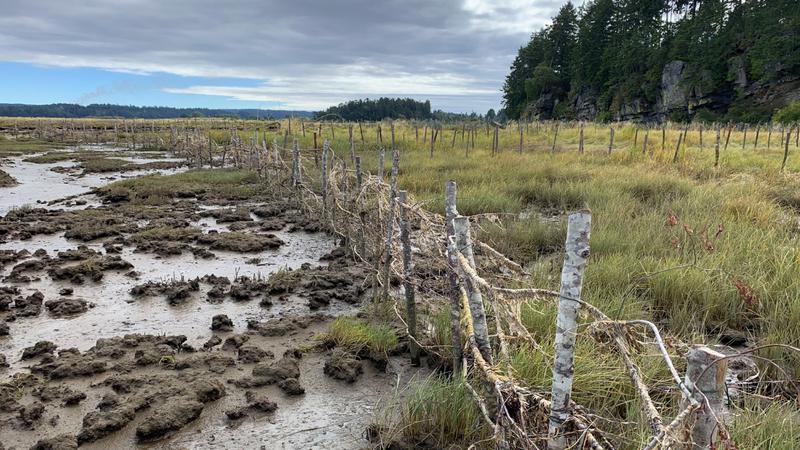
First Nations techniques leading conservation fight against iconic Canadian bird in Nanaimo
NANAIMO — Local conservationists are leaning on traditional First Nations techniques to stop an iconic Canadian bird from destroying local fish habitat.
Non-migratory Canada geese are feeding year-round on carex sedge grass along the Nanaimo estuary, causing issues for local salmon populations and triggering accelerated erosion.
Tim Clermont, executive director of the Guardians of Mid Island Estuaries Society, told NanaimoNewsNOW, they’re building crude fences from alder and willow using techniques perfected by First Nations over hundreds of years.
“As long as we build them with enough interference for Canada geese, which need quite a large flight path to land and take off, they’ll avoid those areas. They don’t like being in and around wooden structures where they can’t see (predators).


